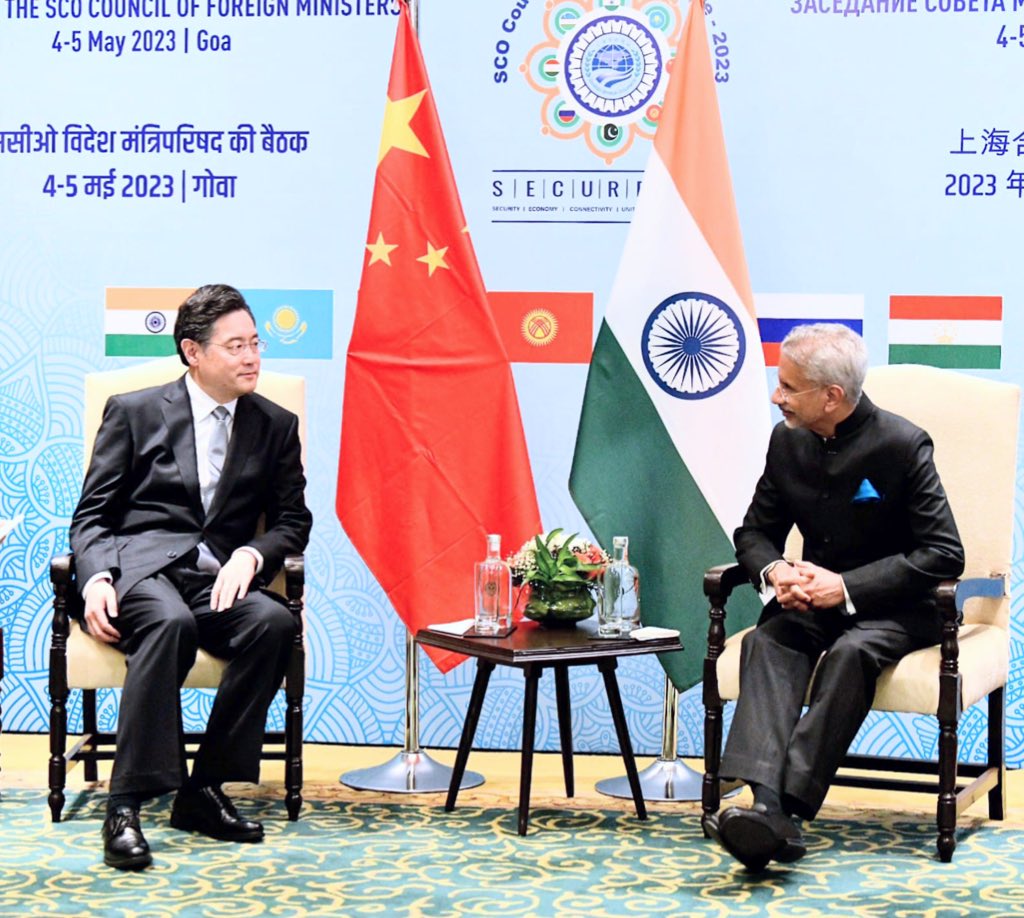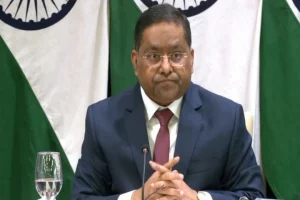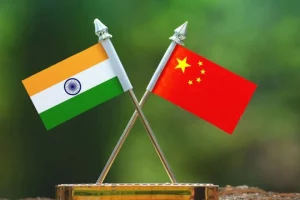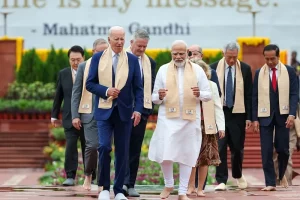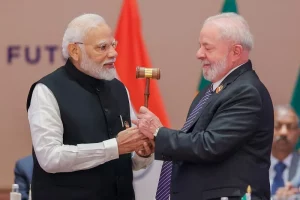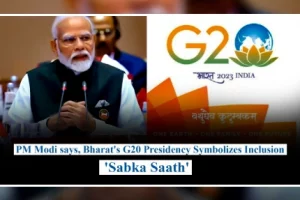Calwaddo (Goa): India and China on Thursday discussed their yet-to-recede border standoff in eastern Ladakh, which could impact three crucial summits—the SCO, G-20 and BRICS—which are scheduled later this year, and where Chinese President Xi Jinping has been invited.
India is hosting the summit of the Shanghai Cooperation Organisation (SCO) and the G-20 later this year. The atmosphere for these summits can dramatically improve in case there is a thaw along the India-China border following the restoration of the status quo ante as of April 2020. India-China ties headed steeply south following Chinese incursions across the Line of Actual Control (LAC) in eastern Ladakh in May 2020, followed by the infamous Galwan valley incident in June that year, leading to fatalities on both sides during a bitter unarmed clash.
During talks between External Affairs Minister S. Jaishankar and his Chinese counterpart Qin Gang on the side-lines of SCO foreign ministers’ conference in Goa, talks predictably focused on the resolution of outstanding issues and ensuring “peace and tranquillity” in the border areas.
With a crowded diplomatic agenda ahead, the SCO, G20 and BRICS summits were also discussed, Jaishankar said. “A detailed discussion with the State Councillor and FM Qin Gang of China on our bilateral relationship. Focus remains on resolving outstanding issues and ensuring peace and tranquillity in the border area. Also discussed SCO, G20 and BRICS,” Jaishankar tweeted.
“A detailed discussion with State Councillor and FM Qin Gang of China on our bilateral relationship. Focus remains on resolving outstanding issues and ensuring peace and tranquillity in the border areas. Also discussed SCO, G20 and BRICS,” tweets EAM Dr S Jaishankar
(Pics: EAM) pic.twitter.com/6XktjUppti
— ANI (@ANI) May 4, 2023
In the battle of wills between New Delhi and Beijing that ensued three years ago, the Chinese have now arrived at a position that India should de-link the borer incursion from the other tracks of the relationship, including economy, trade and investment. On the contrary, India has taken the position that it is impossible to separate the current incursion from the overall normalisation of ties.
Earlier, the Chinese Foreign Minister arrived at Goa airport to participate in the two-day SCO foreign ministers’ conference. This is Qin’s second visit to India, signalling an escalation of diplomatic engagements between the two rising powers, as they compete for geopolitical space in the Indo-Pacific region as well as Eurasia. The Chinese foreign minister was India at the G-20 foreign ministers meeting earlier this year.
Earlier, the spokesperson for the Chinese Foreign ministry said that Qin will exchange views with other SCO member states’ foreign ministers on the international and regional situation.
“At the meeting, State Councillor and Foreign Minister Qin Gang will exchange views with other SCO member states’ foreign ministers on the international and regional situation and SCO cooperation in various fields, among other topics, to make full preparation for this year’s SCO summit.”
During the course of the day, Pakistan’s foreign minister Bilawal Bhutto-Zardari also flew into Goa for the conference—the first visit by a Pakistani foreign minister in 12 years.
It is unlikely that a bilateral meeting between Zardari and Jaishankar will take place. Even if it does, India’s stand will be clear and terse. A full-blown revival of ties with Pakistan is only possible if Islamabad verifiably terminates the spread of terrorism in India. Till that happens, as a follow-up of the revived ceasefire agreement of 2021, the relationship between the two sides, from an Indian perspective, is likely to remain in deep freeze.
Nevertheless, there is considerable media interest on whether the two foreign ministers will greet each other during the course of the two-day conference.
Also Read: Why India will go all out to dig its heels in Eurasia during Goa SCO conference






